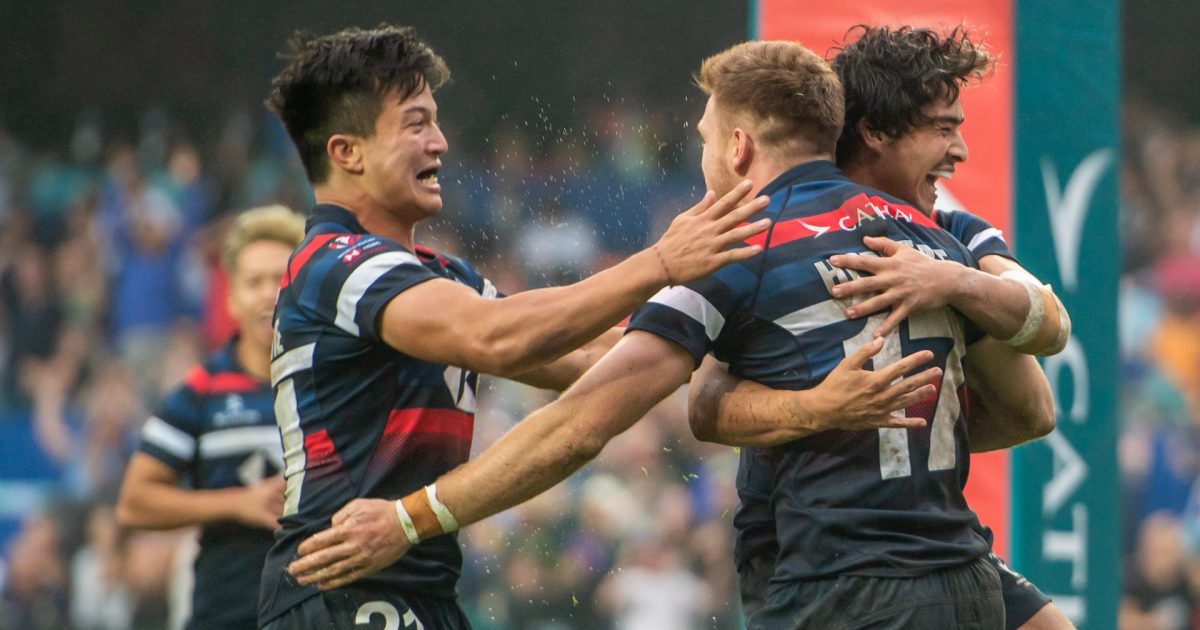‘Very excited’: South Africa to host World Rugby Sevens Challenger Series 2023

Stellenbosch, South Africa, will play host to the third installment of the World Rugby Sevens Challenger Series 2023, which features a pair of combined men’s and women’s events taking place at Markotter Stadium on 20-22 and 28-30 April 2023.
The World Rugby Sevens Challenger Series replicates the Olympic Games format, which sees the 12 men and women’s teams drawn into three pools of four. The top two from each pool, as well as the two best third-placed finishers will qualify for the knockout stages. The quarter finals and semi-final matches will lead to the bronze and gold medal matches.
The 12-team women’s pool draw sees Poland go up against Columbia, Hong Kong China and Paraguay in Pool D.
Hosts South Africa have been drawn against Madagascar, Mexico, and Czechia in Pool E.
Pool F features China, Belgium, Papua New Guinea and Thailand.
The winner of the women’s competition will secure an automatic entry to the HSBC World Rugby Sevens World Series 2024.
In the men’s Challenger Series, Germany headline the men’s Pool A and are joined by Tonga, Zimbabwe and Belgium.
2022 hosts and third place finishers, Chile, will be looking to improve from last year and go for the top spot. They will take on Hong Kong China, Papua New Guinea and Italy in Pool B.
In Pool C, Uganda are joined by Korea, Jamaica and Brazil.
The Black Ferns Sevens are adored by rugby fans around the world – well, most of the time anyway.#BlackFernsSevens #NewZealand #WorldSevensSeries #HongKong7s https://t.co/UH3TFLrL87
— RugbyPass (@RugbyPass) April 1, 2023
The winner of the men’s competition will enter a four-team play-off at the HSBC London Sevens in May 2023 together with the teams placed 12th – 14th after ten rounds of the HSBC World Rugby Sevens Series. The winner of the play-off will achieve the coveted Sevens World Series 2024 status.
World Rugby Sevens Challenger Series Director, Cian Twomey said: “The World Rugby Sevens Challenger Series is a vitally important tournament that provides meaningful competition and a clear promotion pathway to reach the pinnacle HSBC World Rugby Sevens Series.”
“We introduced the series in February 2020 with the aim of boosting the global development of rugby sevens and we’re proud to see the 2022 champions, Uruguay men and Japan women, currently playing competitively in the HSBC World Rugby Sevens Series.”
Rian Oberholzer, CEO of SA Rugby said: “The growth of sevens across the globe has been phenomenal over the last few years and we are very excited to host the Challenger Series here in South Africa over the next few weeks.
“The inclusion of Rugby Sevens on the Olympic Games schedule since 2016 has been a great driver for the game. We’ve also seen the levels of competition on the HSBC World Rugby Sevens Series reach new highs and this will definitely have an impact on the quality on offer at the Challenger Series events.
“Best of luck to all the teams, but especially to our Springbok Women’s Sevens team who will be aiming for a spot as a core team on the World Series, and to also book their spot to Paris in 2024.”
The competition will kick-off on 20 April at 09:00 local time (GMT +2) when Belgium take on Papua New Guinea in the women’s Pool F, while Madagascar go up against Mexico in Pool E.
– Press release/World Rugby










































































